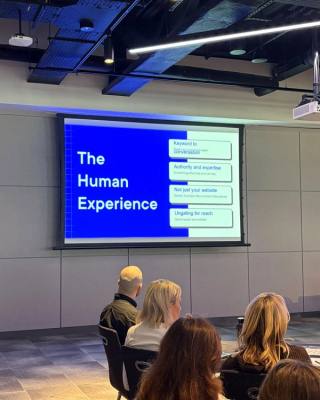Underinvestment, wasteful spending, and an inability to develop domestic resources is unfortunately nothing new to the FAI. Their decision earlier this year to employ a UK agency for a website redesign should not really come as a surprise in this regard. Whilst I welcome competition from international firms in the Irish market, it may be time to question the long-term consequences of outsourcing public contracts when perfectly capable domestic solutions exist.
The example of the FAI is particularly pertinent. As the Jack Grealish and Declan Rice sagas illustrate, trying to poach quality players from abroad rarely works out in the long run. By desperately pursuing English talent, the FAI neglected the far more important task of player development at home, sabotaging a generation of Irish football for, ultimately, nothing. The same applies to their spending in general. Instead of throwing time and money at foreign firms in the hopes of short-term success, we might better invest those resources domestically, building a more sustainable base of expertise and talent.
Of course, we have no complaints about free competition from overseas. To stay with the football analogy, the benefits of importing foreign talent can be dramatic. Jack Charlton springs to mind. Likewise, Kooba is an international firm, and has no issue competing for business in overseas markets. We understand that procuring from abroad is sometimes just too efficient to ignore, and as such can be the best decision on behalf of the Irish taxpayer.
What matters, ultimately, is that we ensure our own domestic sources of ability and talent are supported and given a fair playing field, not subjected to short-sighted false economies and starved of resources. This means the deliberate and efficient use of Irish firms to fulfill Irish contracts wherever possible. Irish businesses can compete at the highest level, and they need to be given the platform to do so.
My reasons for arguing this are by no means sentimental. The intelligent investment of state resources domestically is simply a better use of taxpayer euros. By outsourcing our contracts, we export government finances, denying domestic producers of revenue, and stifling their spending and growth. When money is instead spent locally, this has a knock-on effect for the employees and suppliers of local companies, as well as the wide variety of firms they may spend their income on. This results in a tax revenue feedback, with a portion of the initial investment being recouped via taxes on this increased private spending.
Likewise the denial of contracts to domestic firms actually increases state costs in the long run. Take the example of physical infrastructure, where unit costs are lowest in those countries which build the most, and highest in those that build the least. China, Japan and Spain all construct railways far cheaper than is possible in Ireland, in large part because engineers in those countries have learnt from previous projects how to do so efficiently and quickly. Likewise, competitive domestic markets have developed as a result of steady investment, further lowering costs. Building up a capable and competitive pool of local firms can dramatically reduce project costs far into the future, and our public procurement process should price in this benefit by rewarding firms which invest their revenue into Irish talent and develop local expertise.
Ireland has a phenomenal range of competitive, creative and growing firms. That’s true of my industry of web design, but also across our entire economy. Likewise we have public money to burn, as evidenced by our recent budget. A public procurement process that puts two and two together is, frankly, common sense, and will save future taxpayers, further develop Irish businesses, and ultimately improve the quality of projects delivered to the public sector.









